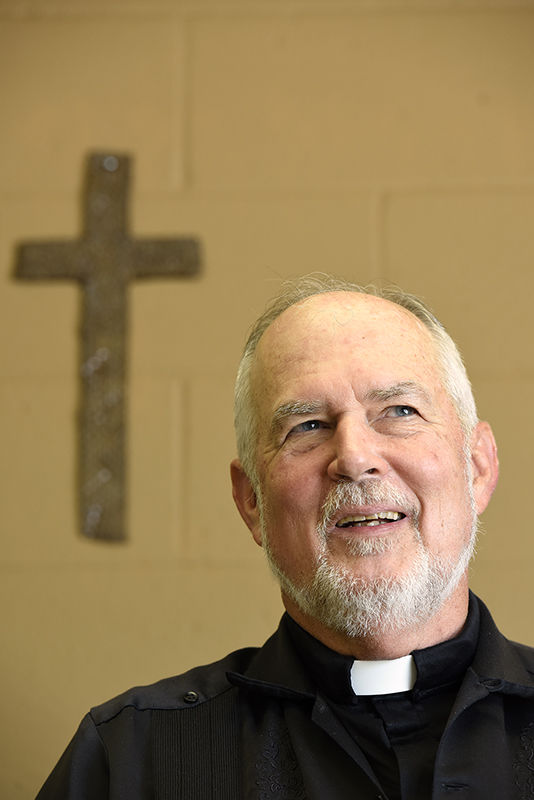Jesuit Father Mike Kennedy is co-chaplain of Barry J. Nidorf Juvenile Hall in Sylmar. He also founded and directs the Jesuit Restorative Justice Initiative. The team ministers to inmates in state and federal prisons, while advocating for systemic changes in criminal justice.
The 68-year-old Jesuit believes the school-to-juvenile-hall-to-prison “pipeline” continues to feed mostly young, poor minorities into California’s 34 penal institutions.
“Our urban public schools are jungles because they’re all gang and drug infested,” says Father Kennedy. “Very few get to be juniors or seniors in high school because they’re now on crystal meth or something else. So they don’t go to school and then they drop out.”
And many start hanging with their neighborhood gang for self-protection, with their next life stop being a Los Angeles County juvenile camp or hall.
“We put them together with other gang members, which only makes it worse,” he points out. “So probably the hardest place to change is really in juvenile hall and many wind up eventually in state prison. So basically that’s the paradigm.”
Father Kennedy acknowledges how conditions have recently improved in the prisons his team visits up and down the state. He remembers how even five years ago inmates were sleeping in gyms. But he also reports that many — especially Level IV or maximum security institutions — are still overcrowded, with inmates waiting for weeks or months to enroll in self-help programs and education courses.
The priest agrees with Russian writer and philosopher Fyodor Dostoyevsky that a society’s civilization can be judged by entering its prisons. “The important people are people who go to Harvard and go to Princeton,” he says. “The people who live in barrios and ghettos and never have a first chance, they’re disposable and invisible.
“Our criminal justice system is punitive: ‘You deserve it! You are a bad person! We don’t believe in redemption! We’re going to treat you bad because you should be punished! We can’t trust you!’
“Yeah, it’s pretty much all those things,” he sums up. “And as a result, it’s a self-fulfilling prophesy. They see themselves after a while as that. They don’t see themselves as good people.”
But the Church says they are.
“You know, Jesus said the people who had been forgiven the most, love the most,” reminds Father Kennedy. “It’s true! Because Jesus is right. They’re the locus, the place of God. I mean, that’s the crucifixion. The darkest place in history had the most light. That is our basic faith. But we kind of skip over that.
“No, you just meet amazing people inside, and some of them have done very horrible things,” he adds. “I never underplay that.”
Editor's note: This piece is part of Angelus News' "Prison on Parole" edition. Read more about the issue from our editor-in-chief, JD Long-Garcia.

